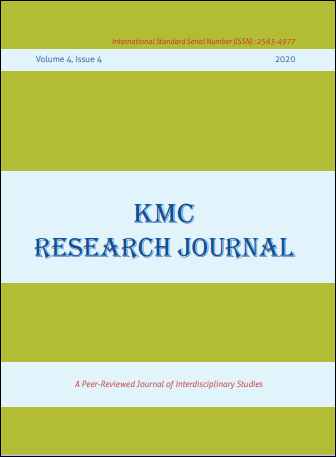Entrepreneurial Intention of Management Students in Kathmandu Valley
DOI:
https://doi.org/10.3126/kmcrj.v4i4.46462Keywords:
Management students, entrepreneurial intention, risk tolerance, self-efficacyAbstract
This study attempts to examine the relationship between risk tolerance and self-efficacy in entrepreneurial intention. A convenient sampling method was applied to select respondents. Self-structured questionnaires were used to collect the data. Out of the 180 questionnaires distributed to the graduated and post-graduate management students in Kathmandu valley, only 140 questionnaires were received and this study is based on the analysis of them. Descriptive and correlation research designs had been used to analyze them. The study concludes that risk tolerance capacity does not influence the students' intentions to start a new business. This result shows somehow inverse results than other previous studies. However, the study concludes that self-efficacy was important in determining the entrepreneurial intentions of graduates and post-graduate students. This result supports the previous study. Therefore, self-efficacy is to take positively related to entrepreneurial intention.
Downloads
Downloads
Published
How to Cite
Issue
Section
License
© Koteshwor Multiple Campus




